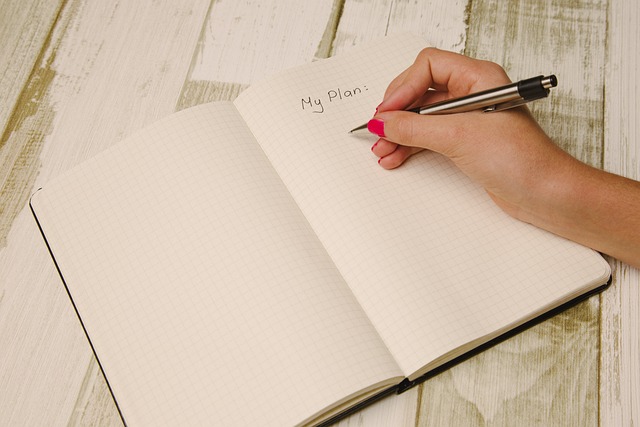The Importance of Setting Personal Boundaries for Success
In today’s fast-paced world, the concept of setting personal boundaries has emerged as a crucial element for achieving personal success and fostering personal development. Boundaries act as a framework for how we allow others to treat us and how we subsequently respond. Many people may feel hesitant to implement boundaries, fearing they might come off as harsh or unapproachable. However, establishing these limits is vital to ensuring that our relationships remain healthy and that we can pursue our goals with clarity and vigor. Understanding how to set these boundaries can significantly affect your journey toward personal success and well-being.
To fully comprehend the importance of setting boundaries, let’s first dissect what boundaries really are. Think of them as invisible lines that dictate what is acceptable and what is not in our interactions with others. They can be physical, emotional, mental, or even digital in nature. For instance, a physical boundary might involve deciding how much personal space you need during conversations, while an emotional boundary could involve recognizing when someone’s negativity impacts your mental health. Being aware of these parameters enables you to protect your energy and maintain your emotional wellness, which is essential for staying focused on personal development.
Setting boundaries isn’t solely about saying “no” to things that drain us. In fact, it’s much more nuanced than that. It entails recognizing our values and principles, and ensuring that our actions align with them. When we allow others to impose their needs over our own, we risk losing sight of our goals and personal success. It often leads to burnout, resentment, and confusion. As we navigate our professional and personal lives, we must prioritize what truly matters to us. Doing so fosters clarity, enabling us to make informed decisions and take actions that positively contribute to our personal growth.
Moreover, boundaries play a pivotal role in improving our productivity and overall quality of life. When we delineate clear guidelines, we create a conducive environment for growth. For example, if you are a professional looking to advance in your career, you might decide to set a boundary around your work hours. By doing this, you not only enhance your work-life balance but also deepen your focus during designated work hours. This clarity aids in maximizing productivity, enabling you to deliver high-quality output without feeling overwhelmed. Additionally, having such limits can help you carve out time for self-care and personal interests, both key components of personal development and overall success.
Recognizing the Signs You Need to Set Boundaries
Recognizing when to establish boundaries can be a game-changer in your journey toward personal success. Often, people experience feelings of anxiety, exhaustion, or frustration, which can serve as red flags that boundaries are lacking. If you find yourself frequently feeling overwhelmed by requests from others, it’s time to reflect on your boundaries. Perhaps you’re always the one volunteering to help with work projects, or maybe friends frequently ask for your time and energy without considering your needs. These situations, while they might seem harmless at first glance, can erode your well-being over time.
Additionally, if you experience discomfort in conversations or find yourself feeling obligated to please others, look closely at your boundaries. It’s essential to recognize that your well-being comes first. You have the right to prioritize your needs without guilt. This sentiment is not about being selfish; rather, it’s about valuing yourself enough to assert your needs and maintaining a sense of balance. By acknowledging these signs, you cultivate greater self-awareness and empower yourself to take the necessary steps toward personal development.
Another important aspect to consider is the long-term effects of neglecting boundaries. When we fail to assert ourselves, we might convince ourselves that we are being accommodating or nice. However, the result often leads to feelings of resentment, burnout, and even physical health issues. Chronic stress stemming from a lack of boundaries can lead to various health complications, both mental and physical. Therefore, learning to recognize the urgent need for boundaries is not merely helpful; it is essential for sustainable personal success. Start by journaling your feelings and experiences. Identify scenarios that trigger discomfort and reflect on where your boundaries may be lacking.
How to Effectively Set Personal Boundaries
Now that we understand the significance of boundaries and when to recognize the need for them, let’s talk about how to effectively establish these limits. First and foremost, begin with clear communication. It’s imperative to express your boundaries openly and assertively. For example, if a colleague frequently interrupts your focused work time, don’t hesitate to say, “I need to focus on this project right now. Can we discuss it later?” By stating your needs clearly, you help others respect your limits while conveying confidence in your choices.
Practice active listening during boundary-setting conversations. Understanding the other person’s perspective is crucial. They may not even realize that their actions affect you. By engaging in a transparent dialogue, you foster an atmosphere of respect and collaboration. Valuing both your needs and the needs of others strengthens relationships and facilitates understanding. Remember, establishing boundaries is not about shutting people out; it’s about cultivating healthy connections based on mutual respect.
Moreover, utilize “I” statements to express your thoughts. For instance, instead of saying, “You always interrupt me,” try, “I feel frustrated when I’m interrupted during discussions.” This shift from accusatory language to personal expression changes the conversation dynamic. It invites the other person to reflect on their behavior without feeling attacked. Ultimately, promoting a healthy way to articulate your boundaries sets the tone for lasting relationships. Also, consider involving trusted friends or mentors to hold you accountable while you practice setting boundaries, making it easier to stand firm in your decisions.
The Role of Boundaries in Personal Development
The contribution of personal boundaries towards personal development cannot be overstated. Setting boundaries isn’t just about protecting yourself; it’s a vital part of personal growth. As you practice boundary-setting, you’ll likely discover more about your values, needs, and limitations. This self-discovery enhances your emotional intelligence, further propelling your personal development journey. The process encourages you to assess your priorities and make decisions that resonate with your core self.
In addition, boundaries foster resilience. Life is full of challenges, and when you establish limits, you build a safety net that allows you to bounce back more quickly from setbacks. Knowing that you have the power to say “no” or to steer conversations in a more constructive direction boosts your confidence. You become more equipped to handle conflicts and less likely to be overwhelmed by external pressures. This newfound resilience can dramatically influence your career trajectory, helping you navigate obstacles with grace.
Moreover, boundaries facilitate healthier relationships, both personally and professionally. As you gain confidence in expressing your needs, you encourage others to do the same. This reciprocal dynamic leads to genuine connections where both parties feel valued and heard. In your professional life, having clear boundaries can foster a supportive atmosphere. Colleagues will appreciate your clarity, leading to more open and productive teamwork. In turn, this can lead to bigger opportunities and collaborations, giving you a direct pathway toward personal success.
Final Thoughts on Setting Personal Boundaries
In conclusion, setting personal boundaries emerges as a foundation for personal success and development. By prioritizing your needs and values, you not only nurture your well-being but also pave the way for healthier relationships and a clearer focus on your goals. Remember that this process is ongoing and may require adjustment based on your evolving circumstances. Regularly assess where you stand on boundary-setting, and don’t hesitate to recalibrate as necessary. As you continue this journey, you’ll find that boundaries become a powerful tool in reclaiming your time, energy, and ultimately, your success.
FAQ
1. What are personal boundaries?
Personal boundaries are limits we set regarding how we allow others to treat us. They can be emotional, physical, digital, or mental and are essential for maintaining healthy relationships.
2. Why are setting boundaries important for personal success?
Setting boundaries allows individuals to prioritize their needs, reduce stress, and maintain focus on personal goals. When we set clear limits, we enhance our emotional well-being and improve our productivity.
3. How can I start setting boundaries?
You can start by clearly communicating your needs, using “I” statements, and actively listening to the perspectives of others. Practice asserting your limits in conversations where you feel uncomfortable.
4. What are some signs that I need to establish boundaries?
Common signs include feeling overwhelmed by requests from others, experiencing anxiety or discomfort in your interactions, or consistently sacrificing your own needs for the sake of others.
5. How do boundaries contribute to personal development?
Boundaries encourage self-awareness, resilience, and emotional intelligence. They enable you to assess your values and priorities, facilitating healthier relationships that are essential for personal growth.



